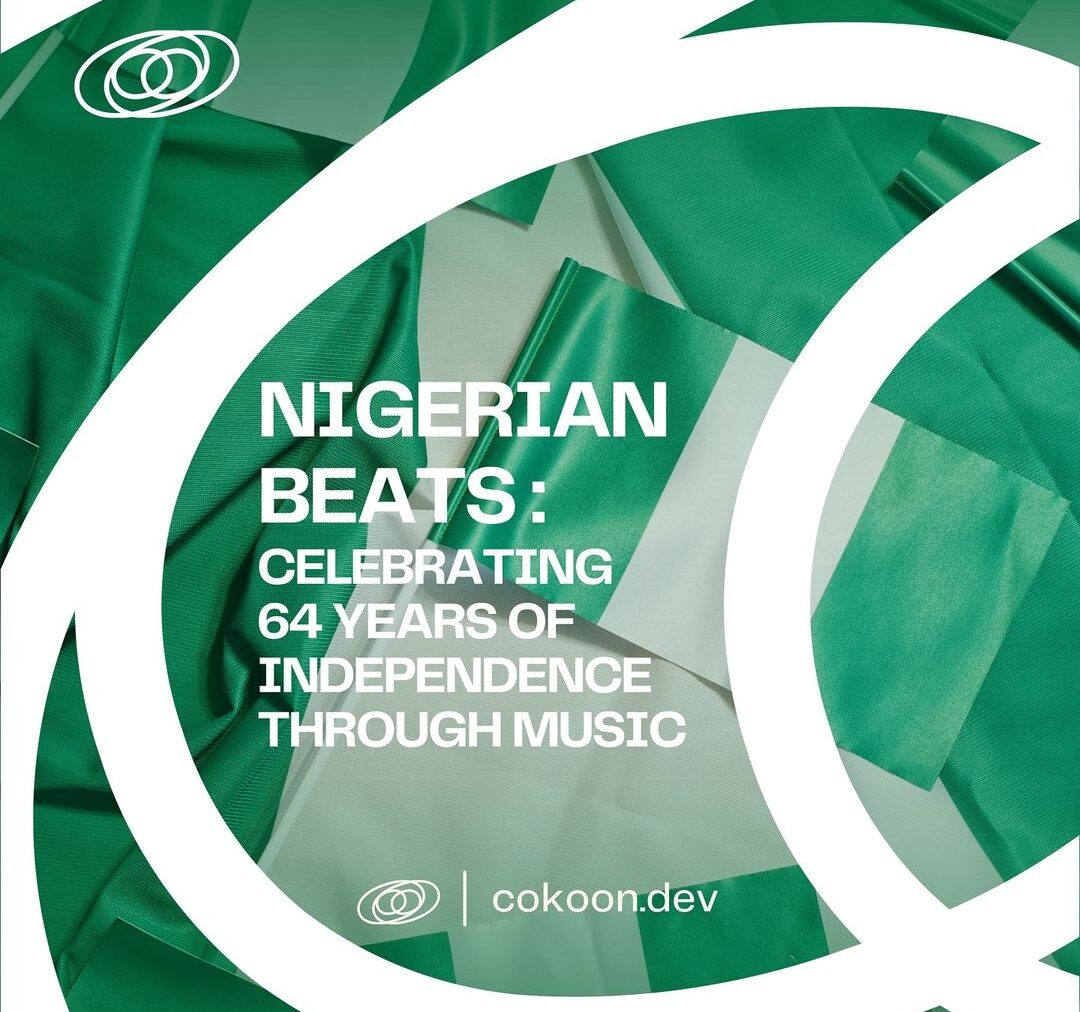As Nigeria celebrates 64 years of independence, there’s no better way to capture the nation’s journey than through its rich, diverse, and globally impactful music. From the early days of high-life to the international explosion of Afrobeats, Nigerian music has been a consistent soundtrack to our triumphs, challenges, and growth as a people.
In the spirit of Independence Day, we’ve curated a playlist from six decades of Nigeria’s sonic evolution. These iconic songs don’t just reflect musical milestones—they tell the stories of our culture, resilience, and relentless innovation.
1960s: Bobby Benson – “Taxi Driver”
The 1960s marked a turning point for Nigeria, not only
in its political independence but also in the rise of its cultural identity. Bobby Benson’s “Taxi Driver” captures the vibrant nightlife of Lagos, serving as an ode to the bustling city. This highlife classic became a beloved anthem, embodying the optimism and excitement of post-independence Nigeria. With its infectious rhythm and relatable lyrics, “Taxi Driver” was more than a song!
1970s: Fela Kuti – “Water No Get Enemy”
As Nigeria settled into its newfound independence, the 1970s brought a wave of political consciousness. No one captured this spirit more than Fela Kuti, the pioneer of Afrobeat. His 1975 track “Water No Get Enemy” is not just a masterpiece of instrumentation but a powerful political statement. Through the layered rhythms of horns, percussion, and keyboard riffs, Fela called for unity and resilience, themes still deeply relevant in Nigeria today.
1980s: King Sunny Ade – “Ja Funmi”
With the rise of juju music in the 1980s, King Sunny Ade was at the forefront, blending traditional Yoruba rhythms with modern sounds to create timeless hits. “Ja Funmi” stands as one of the most groundbreaking songs of its time, with its signature guitar lines and upbeat tempo captivating audiences worldwide. King Sunny Ade’s innovative approach made Nigerian music a global force, and “Ja Funmi” remains a symbol of cultural pride and creativity.
1980s: Majek Fashek – “Send Down the Rain”
The 1980s also saw the emergence of another Nigerian legend, Majek Fashek, whose song “Send Down the Rain” became an anthem of hope during difficult times. As Nigeria faced economic struggles, the reggae-infused track resonated deeply, symbolizing the collective desire for relief and new beginnings. With his powerful voice and emotional delivery, Majek Fashek reminded Nigerians that even in the toughest times, there’s always hope for a brighter future.
1990s: Evi Edna Ogholi – “Happy Birthday”
In the 1990s, a simple yet unforgettable track by Evi Edna Ogholi became the go-to song for every Nigerian birthday celebration. “Happy Birthday” carried an innocence and joy that connected with listeners across the country. It quickly became a household staple, showing that Nigerian music could be fun, lighthearted, and universally relatable. To this day, the song is an iconic feature of birthday parties, weddings, and celebrations.
1990s: Plantashun Boiz – “You and I”
The late 1990s saw the birth of R&B-infused Afrobeats, with Plantashun Boiz at the forefront. Their track “You and I” introduced 2Baba’s smooth, iconic voice to the world, setting the stage for Nigeria’s domination of the R&B and Afrobeats scene. With its romantic lyrics and laid-back melody, “You and I” showcased the softer side of Nigerian music, while planting the seeds for the global success that would come in the next decade.
2000s: 2Baba – “African Queen”
In 2004, 2Baba (formerly 2Face) released “African Queen,” a love ballad that not only became an instant classic in Nigeria but also put Afrobeats on the global map. With its tender lyrics and melodic rhythm, the song celebrated African beauty, resonating with audiences worldwide. “African Queen” was more than just a hit—it marked the beginning of Afrobeats’ journey to international recognition, setting the tone for the genre’s dominance in the years to come.
2000s: P-Square – “Do Me”
In 2007, P-Square gave us “Do Me,” a high-energy track that blended Afrobeats and pop. Its infectious beat and catchy chorus dominated the airwaves, becoming a party anthem across the continent. P-Square’s innovative sound and electric performances were a testament to how far Nigerian music had come, and “Do Me” remains one of the most iconic tracks of the 2000s.
2010s: Wizkid – “Ojuelegba”
As we entered the 2010s, Wizkid emerged as a leader of the new Afrobeats wave. His 2014 hit “Ojuelegba” was a soulful track that reflected his journey from the streets of Lagos to international stardom. The song’s heartfelt lyrics and smooth production resonated not only with Nigerians but with fans across the globe, further solidifying Afrobeats’ place on the world stage. “Ojuelegba” was a reminder that despite the challenges, success is possible with hard work and perseverance.
2020s: Burna Boy – “Last Last”
In the 2020s, Burna Boy continues to carry the torch for Nigerian music on the global stage. His 2022 hit “Last Last” is a deeply emotional Afrobeat song filled with cultural references that speak to the complexities of love, heartbreak, and resilience. With its global appeal, “Last Last” showcases how Nigerian artists are pushing boundaries, creating music that is both deeply personal and universally relatable.
Explore the playlist now on YouTube and Apple music.

